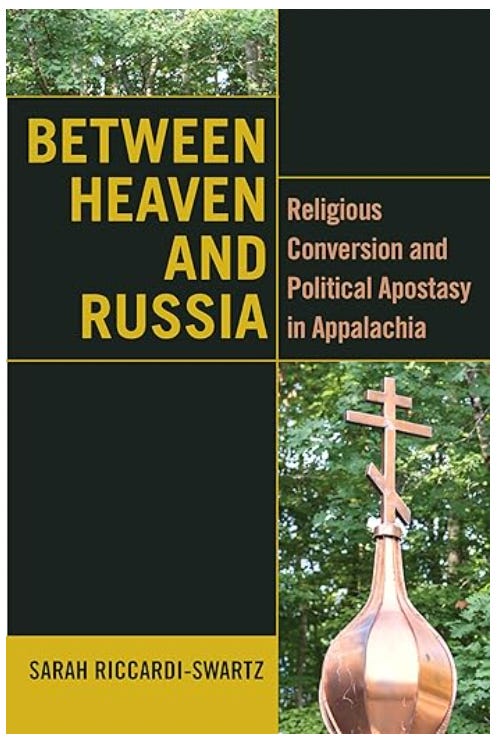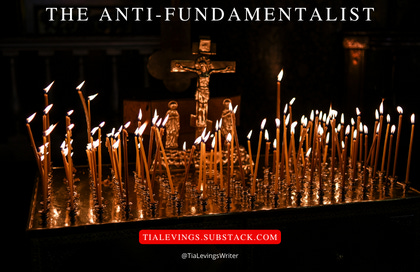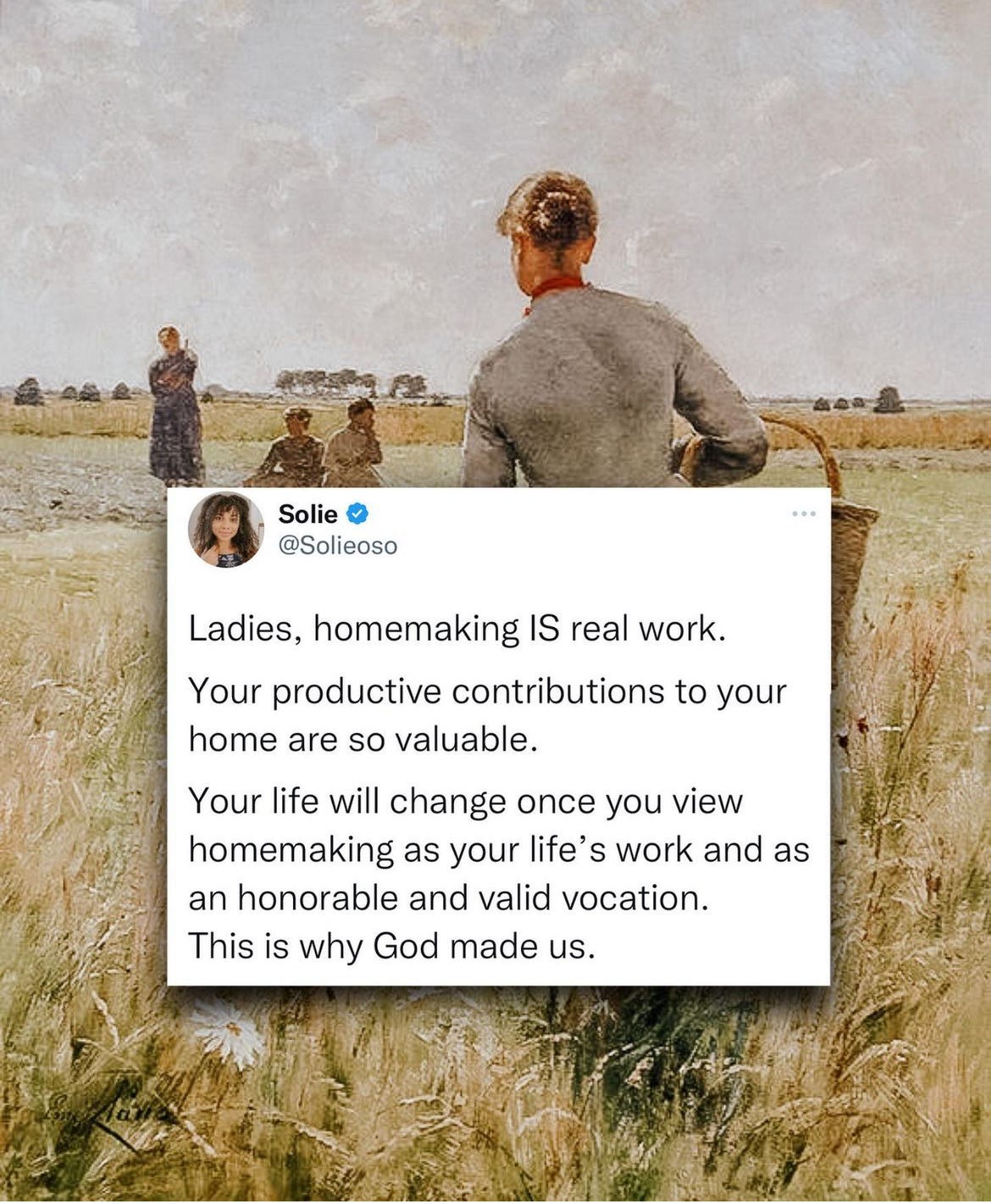I had three contacts this week share how fundamentalism is spreading in and through their Orthodox churches.
There's a pattern--groups of young men (ardent, devout new converts who love debating theology online and especially on Discord) join a parish. The old guard welcomes them because they bring an influx of enthusiasm, young families, and involvement.
The aesthetic might be familiar:
But these men are often Calvinist and of the darker, newer evangelicism that espouses strict complementarianism, authoritative discipline in the home, and rigid "trad" idealism. They come for the infant baptism and communion, monasticism, and textured worship appealing to them as they debate Anglican or Presbyterianism. Orthodoxy, with its ancient beauty and kind patriarchy, seems at once both novel and radical. This is a feeling I can relate to, having once found Orthodoxy after being excommunicated from the CREC. Priests either let the warning signs slide or don't know what they don't know about protestant fundamentalism in families.
Suddenly, high-control, misogynist names that once would've never entered an Orthodox parish are becoming common: for example, Doug and Nate Wilson, Michael Pearl, James Nance, Gregg Strawbridge, RC Sproul Jr. This is falling into a climate that's already shifted as parishes that once evenly blended between conservative and liberal have polarized to the right wing.
This is changing Orthodoxy as a safe harbor for religious trauma exiles in America, and changing how women especially feel in their parish congregations. Already patriarchal, Eastern Orthodoxy at least offers female role models through saints and limited leadership. According to these conversations, that's changing, which tracks what I've observed from a distance in my own (now former) parish.
This trend towards fundamentalism is also rising in Catholicism through the "trad Catholic" movement-- as quiverful and high-control as Bill Gothard and the IBLP, but without any awareness of roots and influences.
Doug Wilson’s CREC is spreading internationally through church plants and peripheral lifestyle resources such as the trad wives, podcasts (Doug’s daughters have a popular podcast), homesteading, homeschooling (Classical Conversations in particular), and theobro-apologetics online. But so is Orthodoxy, with it’s ever-popular appeal with Anglican, Evangelical, and Reformed Presbyterian converts. I was one of these; I know my journey is common among EO converts. We’ve all had a toe in that water.
Interesting too, that this pattern involves Russian Orthodox churches in America (and ROCOR, which stands for the Russian Orthodox Churches Outside of Russia and can be very, very confusing for anyone outside of the tight little Jack-in-the-Box of arguments between these two.) These parishes I heard of this week, and my own former included, are American and UK plants with Russian roots, as opposed to Greek or Antiochian. I’m curious about that.
A book I’ve ordered that you too may find interesting:

The author was embedded in Orthodox parishes in Appalachia—West Virginia, to be exact. The regions overlap in a Venn diagram—the CREC has a strong presence in Appalachia. I converted from the CREC to Orthodoxy in Tennessee and I have friends who became part of a Russian/ROCOR/Fundie cult in the mountains. I don’t remember the details but it involved Bishop and supervising priest intervention. And it was a closed congregation of extreme control and rigid views, so easier to discern what steps should be taken. That was ten years ago.
It looks to me like the ideas spread. When a group of bright young men lathered up for discipleship, shepherding, and zesty conversation shows up with sweet wives and a cluster of small children…whose going to recognize the fundamentalism they’re bringing with them?
Read more of my personal experiences as a trad wife here.
Book Office Hours with me here.







I think it’s the same as with any denomination—there are some orthodox churches where fundamentalism thrives, and and others where it doesn’t. I definitely steer clear of certain priests and their teachings, for that very reason. I was raised in orthodox fundamentalism and I have spent 25 years deconstructing from it.
So many contributors to AFR fit this bill. I think the shortage of priests also contributes to converts being ordained before they’ve even hit 5 years and definitely before they’ve changed their fundamentalist outlook